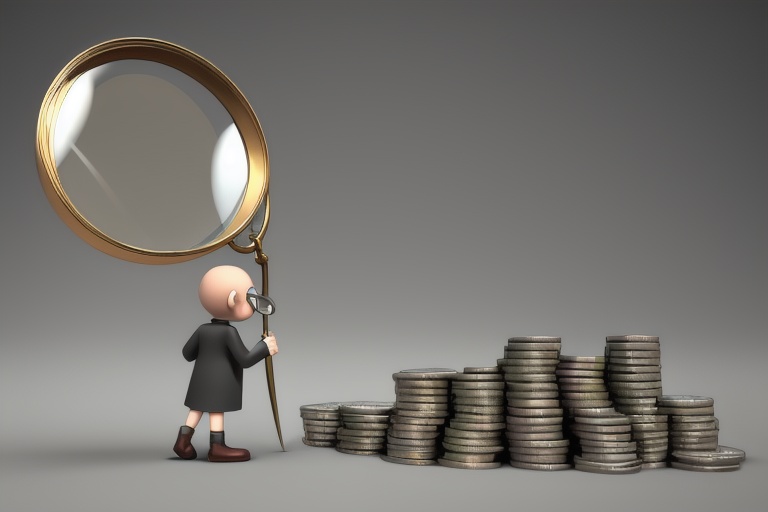Welcome to an enriching journey into the world of numismatics—the study and collecting of coins, tokens, and related objects. As a seasoned coin collector and dealer with three decades of experience, it's my pleasure to share insights and advice that can help enhance both your collection and your understanding of this engaging pursuit.
Welcome to an enriching journey into the world of numismatics—the study and collecting of coins, tokens, and related objects. As a seasoned coin collector and dealer with three decades of experience, it's my pleasure to share insights and advice that can help enhance both your collection and your understanding of this engaging pursuit.
Understanding the Basics of Coin Collecting
Collecting coins is more than just a hobby; it's a window into the past and a tangible connection to the narratives that have shaped civilizations. Collecting can begin simply, often by sorting through pocket change or acquiring a set of coins that piques one's interest. From wheat pennies to buffalo nickels, each piece can tell a story. I encourage new collectors to find an area of interest and start there. It could be a particular time period, region, or type of coin—such as silver dollars or commemorative issues.
Building Your Coin Collection
Once the spark has been ignited, building your collection can take several paths. Going through change, connecting with fellow collectors, visiting coin shops, or participating in online auctions are all valid strategies. To discover exceptional pieces, you might consider attending coin shows, where you'll not only find a plethora of coins but also gain valuable knowledge from seasoned numismatists.
Organizing and Storing Your Coins
A well-maintained collection is not just about aesthetics; it's about preservation. Properly storing and organizing your coins can protect them from damage and environmental factors, which could impact their value over time. Tools like coin folders, albums, capsules, and climate-controlled storage options are investments in the longevity of your collection. Labels and cataloging software can also keep your collection organized so that you can quickly identify and access your coins.
Assessing Coin Value: Beyond Metal and Mint
Kimberly mukhtar in the intricacies of coin valuation is a journey that considers numerous factors beyond just the market value of the metal or the mint where it was produced. A coin's value is influenced by its rarity, demand, historical significance, condition (often referred to as "grade"), and provenance. A coin in pristine condition, for instance, is more likely to fetch a higher value than one that shows significant wear and tear.
The Art of Grading
Grading is a key aspect of coin collecting that can significantly impact a coin's value. While there are standardized grading systems, such as the Sheldon Scale, mastering this skill takes time and practice. The scale ranges from Poor (P-1) to Perfect Uncirculated (MS-70/PR-70) and includes factors like luster, strike, and the presence of any marks or flaws. Even for seasoned collectors, it can be advisable to seek a second opinion from professional grading services for high-value items.
The Significance of Rarity and Demand
Rarity and demand are what often turn a piece of metal into a valuable coin. A coin that was minted in limited quantities or has unique features can be highly sought after by collectors. Conversely, a coin that is rare but not in demand may not achieve a high valuation.
Market Trends and Liquidity
Just like any other market, the coin market has its fluctuations. Prices can be affected by economic factors, new discoveries, changes in collector tastes, and prevailing trends. A key part of successful collecting and investing involves staying informed about the market and understanding the liquidity of different types of coins.
Embracing the Community Aspect
Coin collecting is not just an individual pursuit; it's a community. Joining clubs, attending local or national numismatic society meetings, subscribing to publications, and participating in online forums can provide valuable learning experiences and opportunities to trade or sell.
The Ethical Considerations
Adhering to ethical standards is paramount in coin collecting. This involves ensuring the authenticity of coins, being transparent about restorations or alterations, and handling buying and selling with integrity.
Investing in Numismatic Knowledge
An informed collector is a wise collector. Investing time in learning about numismatics, through educational resources, mentorship from experienced collectors, and ongoing research, can add immense value to your collecting journey.
Coin Collecting as a Legacy
For many, coin collecting is a legacy that can be passed down through generations. It's an accumulation of knowledge, history, and personal stories, all encapsulated in small pieces of metal that have traversed time.
As you embark on this numismatic journey, use this blog as a springboard for knowledge and a conduit for connecting with fellow enthusiasts. Whether seeking out the next piece for your collection or simply looking to learn more about this rich hobby, my aim is to provide clear, concise, and professional guidance for collectors at any level.
Information for this article was gathered from the following source.


